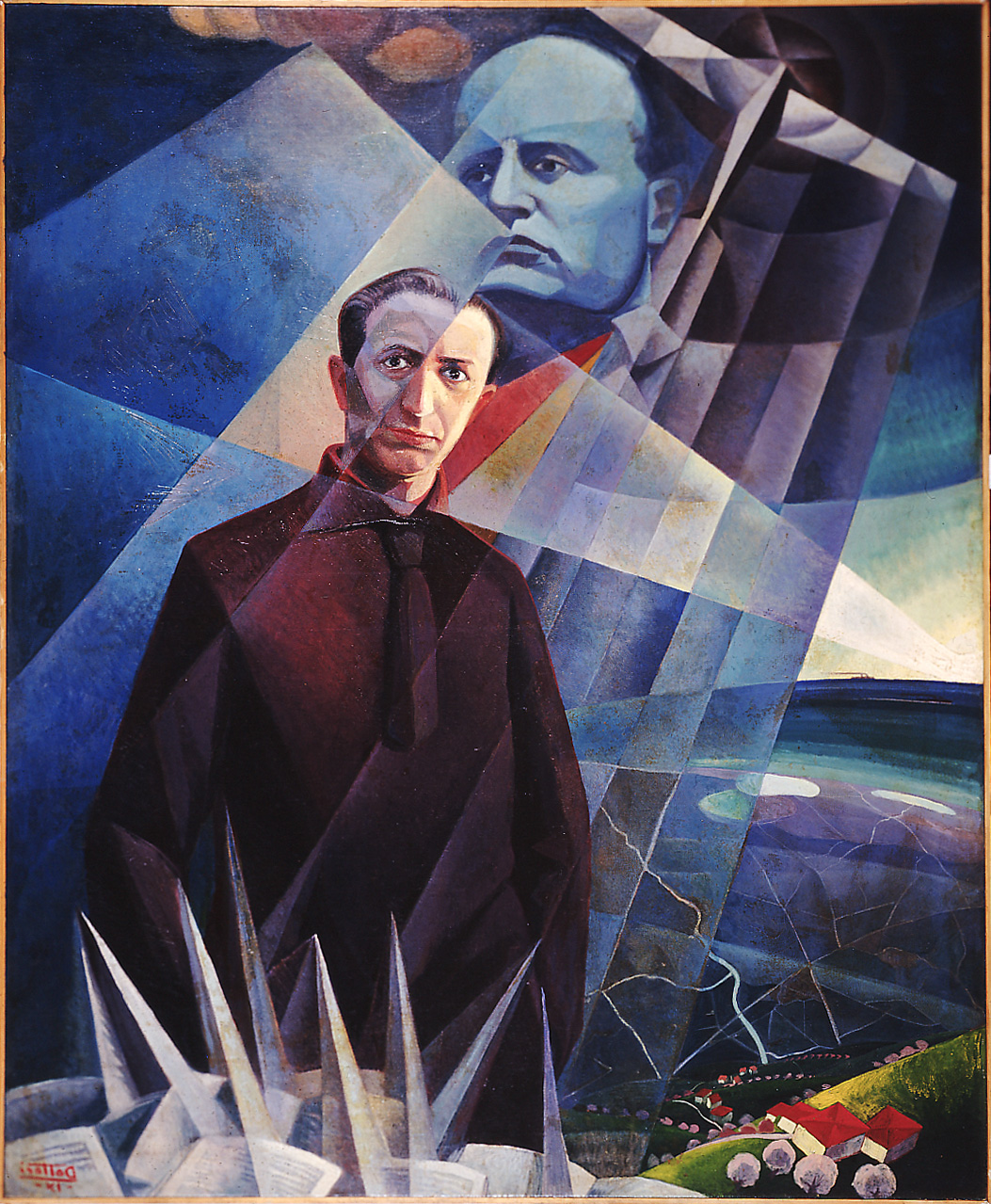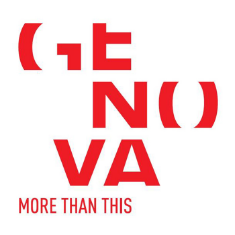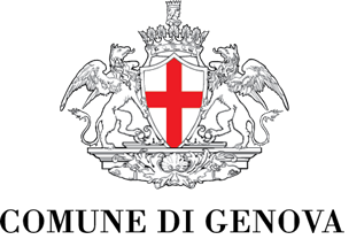
Click here to view image
Gerardo Dottori (Perugia, 1884 circa - 1977)
Oil on canvas, 159 x 129.5 cm
Second floor, Room "Futurismo e propaganda" (inv. no. GX 1993.462)
Donation Mitchell Wolfson Jr, 2007
Painting
When Dottori painted his Aerial portrait of Mario Carli, also called A Mussolini Italian, in 1931, the futurist writer and activist had already become an official personality of the regime. Soon afterwards he was appointed consul at Porto Alegre in Brazil and subsequently at Thessaloniki. However, his existential and artistic path had been extremely rough, revealing the numerous innate contradictions in the historical evolution of Fascism. After making his debut in Florence before the war as an author of experimental, almost pre-surrealist, novels, Carli was one of the top exponents of Arditismo. This typical phenomenon of the original fascist movement promoted the idea of a “new man”, intolerant of all rules and conventions, violent and anarchical, radical and incendiary, audacious and unscrupulous, basically a man with a “dynamo heart, pneumatic lungs, and leopard-like liver”. Driven by these ideals, Carli enlisted in the army voluntarily in 1917, where he was injured and commended. He went to Fiume with D’Annunzio and launched “La Testa di Ferro”, a newspaper for the legionaries there. He was then court-martialled and arrested several times. To open the gates to revolution, he was willing to accept even socialist and communist experiences and models, to the extent that he arose the suspicions of Marinetti and Mussolini. Following the crisis of Arditismo and after the March on Rome, he founded the magazine “L’Impero” with the objective of uniting the most innovative forces of Futurism and mapping out a new culture suited to the perspectives of Fascism. At this stage established in power and with the movement purged of its initial subversive spirit, Mussolini then reined Carli in with an official title in order to make him more innocuous.




